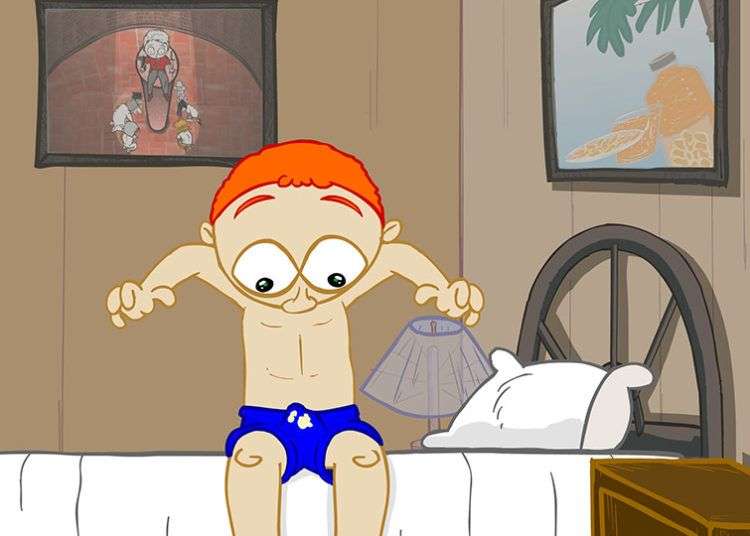The animated series Pubertad will have soon a fourth installment, its director, Ernesto Piña, announced. The program, which premiered in 2008, was the brainchild of the MsC. Mariela Castro Espín from her book What happens to us in puberty?, addressed to the public aged between childhood and adolescence.
“I took some dialogues and arguments of the book and then re-elaborated them with the script writer”, said on one occasion the also director of the National Center for Sex Education (Cenesex). “I realized that the book was not enough; educational experiences from a single source of information are not enough, other ways are needed in the way of transmitting information. The audiovisual is necessary because these generations are very marked by the impact of the language and will find a video faster than a book. ”
Pubertad has been a guide that has helped to clarify some of the many questions that arise at this stage of development. In exchanges with pubertal who have enjoyed the series, Cenesex specialists have found other topics to discuss in the chapters, dialogues that have allowed assessing the impact on its target audience.
After three seasons of 8 chapters each, Pubertad comes again, a work by Cenesex, the Cuban Institute of Cinematographic Art and Industry (ICAIC) and the Cuban Institute of Radio and Television (ICRT), entities that will resume the project, working now with the use new technological trends.
“Animation Studios are preparing all their work with an international standard format, which is the HD (High definition), which completely changes the series in a formal sense, that previously we worked in DVD, but that has passed into history The HD is bigger and widescreen, “said Ernesto Piña.
Making-off before and after
“We started working on the show since 2007, did all of the preparation, sought the voices, the character designs, the first stories, the first scripts, and debated about what it was exactly what Mariela wanted to do with all the arguments she had in his book, “said Piña on the beginnings of Pubertad.
“It was not easy because we had to translate into images and sound something that I think never in the history of animation in Cuba had been done. It was a tremendous experience for everyone, because we were questioning whether they should be children who interpret the characters; Mariela from the beginning thought it had to be the voices of children, to achieve the wanted closeness to the public and proposed to involve La Colmenita “.
Piña recalled that the company led by Tin Cremata as a thermometer to finishing the characters. “When we showed them the design they said, ‘these children look like us’; and I was making caricatures of them as they spoke, and looking for the visuality that connected what I was doing with what is done internationally; when I showed them the new designs they were more satisfied and gave me new ideas for families of the protagonists and the friends. Great teamwork was what enriched us all. ”
Season IV will include again la Colmenita and children who recently attended a casting made in the Animation Studios. “We selected six characters but we still have two boys left,” Piña said adding that work table began to prepare them: “Fortunately we have a study materials that we use to guide them.”
The director explained that for the casting they searched for children with similar voices to previous actors because it has been several years since they started and actresses and actors have grown; some of them are not in Cuba and others went to other provinces. They also took into account, of course, the acting quality of applicants.
“We will not abandon the main characters that the audience knows, but we also want to make way for others who we will be preparing along these. Gradually we will introduce new characters that may be siblings of those we already know, cousins and new friends who come to the neighborhood; something that we are thinking for the next script, “he stated.
The fourth season will have a new presentation and characters will be redesigned to make them more visually appealing: “We will try to enrich the color or design from the photography,” he said.
The dialogue with Cenesex specialists weighed heavily throughout the creative process of the show, the director acknowledged and appreciated this exchange as honest, clear and precise. He also highlighted the support of people of ICRT as Elsa Carrasco, “the counselor par excellence of the series during the first three seasons.”
Piña confessed that there was an evolution in the way the whole team took on the project: “When we started Mariela had many doubts about how some subjects would display. We did a pilot episode where we explained the girls how a breast is growing faster than the other. Bringing that concept to television cost us dearly because in Cuban cartoons we had never put half-naked children; in Pubertad we had a scene where the girl looked at her breasts in the mirror; such as message was a bit difficult to face, but we realized that it was sympathetic, people liked it, it worked, laughed with that. We also helped a lot that was animation, and did not affect visually too much. It was something daring and yet sympathetic, and that was exactly what we were trying to see in the public. We could have won or lost. ”
In advance, Piña reported that the fourth season, which will feature specialist advice in PROCC [1] methodology exposed in an episode of the theme of fanciful or idyllic pubescent love towards older people.
[1] Community Correction Process. Created by Mirtha Argentina Cucco, this methodology provides theoretical and methodological intervention demonstrated and effective contributions to meet the needs of the population by promoting a constant critical look at the way of life and encouraging the development of personal-social prominence and participatory action in the resolution of conflicts of everyday life (www.procc.org).










